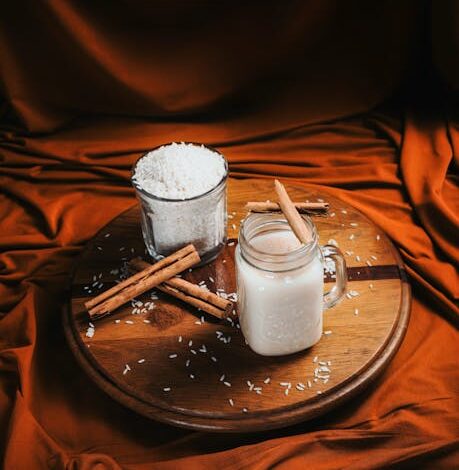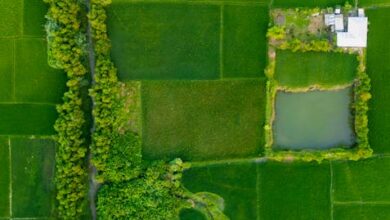The Unseen Connection: Australia’s Role in Egyptian Kitchens

Imagine starting your day with a comforting bowl of fuul medames, the rich, earthy aroma filling the kitchen. For many Egyptians, this iconic dish isn’t just breakfast; it’s a cultural cornerstone, a symbol of home and heritage. The creamy fava beans, simmered to perfection, often adorned with a drizzle of olive oil, a sprinkle of cumin, and a squeeze of lemon – it’s a taste deeply ingrained in the national identity. But what if I told you that a significant portion of those very fava beans, the heart and soul of your fuul, might have traveled halfway across the world from a land you might least expect? My guess is you’d be surprised.
That’s exactly the revelation shared by Australia’s Ambassador to Egypt, Axel Wabenhorst, during a recent Australia Day celebration in Cairo. His remarks unveiled a fascinating, somewhat hidden, connection between two geographically distant nations. It turns out, many Egyptians are consuming Australian products without even realizing it. And the story goes far beyond just fava beans.
The Unseen Connection: Australia’s Role in Egyptian Kitchens
Ambassador Wabenhorst laid it bare: there’s a “good chance” that the fava beans gracing Egyptian breakfast tables were grown in Australia. In fact, over half of Egypt’s fava beans now originate from the land down under. This isn’t just a minor import; it’s a massive, staple-level contribution that speaks volumes about global agricultural supply chains and the quiet efficiency of international trade.
Think about that for a moment. A dish as quintessentially Egyptian as fuul, a culinary tradition stretching back millennia, is now heavily reliant on Australian produce. It’s a testament to the quality and abundance of Australian agriculture, which has quietly become a backbone for various markets worldwide. These aren’t just any beans; they’re the very foundation of a beloved national meal, carefully cultivated and shipped across continents to land on your plate.
But the ambassador’s insights didn’t stop at fava beans. He continued to peel back the layers of this surprising connection, revealing that even the beloved *kebda* (liver) you might enjoy could be made with Australian liver. And the high-quality meat found in many fine restaurants and supermarkets? Often Australian too. This isn’t just about a single ingredient; it’s a pervasive presence of Australian products woven into the fabric of daily Egyptian life, often without explicit branding or fanfare. It underscores how deeply intertwined global economies are, delivering essential goods that form the very basis of our daily sustenance and cultural experiences.
A Legacy of Diplomacy and Shared Heritage
The ambassador’s remarks weren’t just about food; they were part of a broader reflection on 75 years of diplomatic relations between Egypt and Australia. This relationship, which began in 1950 when Australia established its first embassy in the Middle East and North Africa right there in Cairo, is a rich tapestry of history, trade, and human connection.
It’s easy to focus on the immediate surprise of Australian beans in Egyptian fuul, but the deeper context lies in decades of sustained diplomatic engagement. This long-standing relationship has fostered an environment where such trade is not only possible but thrives. It’s a story of mutual respect and cooperation, evolving from formal government ties to tangible impacts on everyday life for millions.
From Cairo to the Outback: The Egyptian Diaspora in Australia
Beyond the dinner table, the human element of this relationship is equally compelling. Ambassador Wabenhorst highlighted Australia’s vibrant multiculturalism, proudly noting that “people have come from every land on earth, including Egypt, to call Australia home.” This isn’t just a handful of individuals; it’s a significant and flourishing community.
Consider this: 60,000 Australian residents were born in Egypt, and over 100,000 identify as being of Egyptian heritage. These numbers speak volumes about the strong cultural bridge that exists. The Egyptian diaspora in Australia is not just well-established; it’s a respected and integrated community, contributing significantly to Australian society. The ambassador even pointed out that two Australian ministers and a Supreme Court judge have Egyptian roots. These are powerful examples of how cultural exchange enriches nations, demonstrating that the flow of people and ideas is just as vital as the flow of goods.
This deep personal connection strengthens the diplomatic and economic ties, creating a feedback loop where shared values and understanding facilitate smoother trade and more profound collaboration. It’s a reminder that international relations aren’t just about governments; they’re about people, their stories, and the bridges they build.
Beyond the Plate: The Deeper Meaning of Global Trade
This revelation about Egyptian fuul and Australian fava beans isn’t just a fun fact; it carries a deeper significance. It illustrates the intricate web of global trade that underpins modern life, often in ways we never consider. Our breakfast tables, our favorite local dishes, are increasingly products of an interconnected world, shaped by distant farms, shipping routes, and diplomatic agreements.
The reliability of Australian agricultural exports helps ensure food security for nations like Egypt, demonstrating the critical role of international partnerships in sustaining populations. When we enjoy a meal, we’re not just tasting ingredients; we’re partaking in a vast, global ballet of supply and demand, trust, and cooperation. It prompts us to think about where our food comes from, the journeys it takes, and the invisible hands that bring it to us.
This scenario also highlights the benefits of strong diplomatic ties. Decades of a stable relationship between Australia and Egypt have created the framework for such substantial trade to flourish, providing economic benefits to both countries and enriching the daily lives of their citizens. It’s a powerful illustration of how diplomacy, even when it seems abstract, has very tangible, delicious outcomes.
A World More Connected Than We Know
So, the next time you savor a spoonful of rich, creamy fuul, take a moment to consider its journey. It might have started as a tiny fava bean seed in the fertile fields of Australia, nurtured under a different sun, before embarking on an epic voyage to become the heart of a cherished Egyptian meal. This story is more than just about beans; it’s a vibrant narrative of global interdependence, a testament to enduring diplomatic relations, and a celebration of the rich cultural tapestry woven by people and produce across continents.
It’s a beautiful reminder that our world is far more connected than we often perceive. The connections are everywhere – in our food, our communities, and the shared histories that bind us. And sometimes, those connections are found in the most comforting and unexpected places, like a humble bowl of fuul, bringing Australia and Egypt a little closer, one delicious bite at a time.





